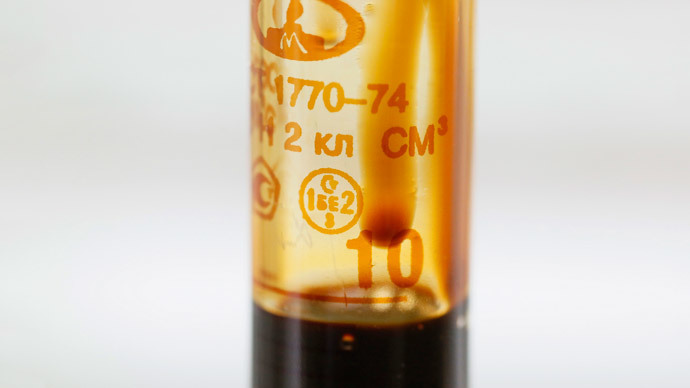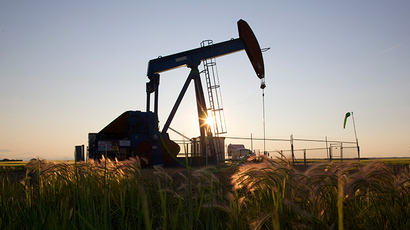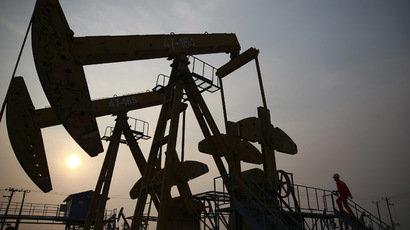Global oil glut sends prices plunging to 4-year low

Oil prices have hit a 5-yr low after the International Energy Agency (IEA) predicted a sharp drop in global oil consumption, cutting its forecast for global demand growth by about 22 percent.
The Paris-based energy watchdog cut its forecast for world oil demand this year by 250,000 barrels a day, according to its monthly report, published Tuesday.
In response, Brent crude tumbled below $87 per barrel, and at the time of publication, was trading at $84.04 per barrel. That is more than a 27.5 percent drop since June, when turmoil in Iraq drove up prices to $116 per barrel.
The monthly IEA report predicts oil supply and suggests the massive increase in production will further drive down prices. The sputtering world economy’s lack of demand is no match for the abundance of oil. Demand from the world’s biggest consumer of oil, China, has dropped to 290,000 barrels per day, a more than 60 percent fall.
Supply in September surged. Crude oil output from the 12 OPEC member countries hit a 13-month high, and adding to the production glut is Libya’s reentry into the oil supply chain, and its ambitious goal to start producing 1 million barrels per day by the end of 2014.
OPEC members have signaled they will not intervene by cutting output to keep prices from falling further.

The Organization of the Petroleum Exporting Countries or OPEC includes Iran, Iraq, Kuwait, Saudi Arabia, the UAE, Qatar, Venezuela, Algeria, Angola, Libya, Nigeria, Venezuela and Ecuador.
Iraq’s production has not been severely affected by the advance of ISIS, which also adds to the plethora of supply.
The oil surplus will affect each OPEC member differently. Iran, which last week was calling for a cut in production, said it would be able to handle a price drop, in the short-term, the WSJ reported.
Saudi Arabia, the world’s biggest liquid petroleum producer, is voluntarily cutting its barrel price to customers, in order to stay ahead of the competition. The country has billions of dollars saved up to weather low prices, but still needs a price of $80-90 to balance its 2014 budget.
The watchdog believes rising oil prices will resume in 2015.

The US shale boom, which began in 2008 and has increased US crude output by 60 percent, is another element in the oil pricing rout. The IEA said North American shale will only remain profitable above $80 a barrel.
Russia’s economy is sensitive to lower oil prices, as the natural resource accounts for 70 percent of its total exports and together with gas provides 50 percent of the money used to fund the state budget.
Urals crude, Russia’s key export blend, usually trades slightly lower than Brent. Russia’s budget depends on $100 per barrel, but the Russian Central Bank is running stress simulations for prices as low as $60 per barrel. Russia’s Urals crude oil experienced a significant drop from its June price of above $110 per barrel to its current level of $86.27.
For every dollar oil prices fall, the Russian budget loses an equivalent of $2 billion, Maksim Oreshkin, the head of the Russian Finance Ministry's strategic planning department, told Bloomberg.
READ MORE: Sanctions & weaker oil prices could cost Russia 4% of GDP – official
Russia’s economy could contract 1.7 percent in 2015 if crude prices average $80 a barrel, Charlie Robertson, the chief economist at Renaissance Capital, told Bloomberg.














